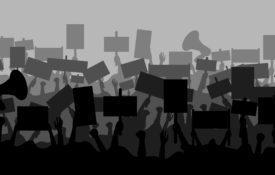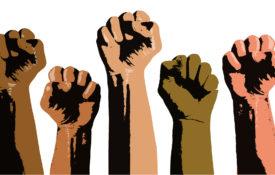-
Black Employees Will Thrive With Remote Work — It’s Anti-Racist
It is 4 p.m. on a Monday and I am on a walk. I am also on the clock. Last Friday, I received a calendar invite for a meeting to discuss my workplace’s ongoing efforts toward anti-racism. The notification made my heart skip a beat. I am a junior faculty member at an elite university, and one of only two Black tenure-track faculty members at my school. I could expect 90 minutes on the school’s sluggish pace toward diversifying the faculty, student body and curriculum, with my mostly-white colleagues occasionally stealing glances to gauge my reaction. Could I skip the meeting? No — my absence would be noted. Thank goodness for remote work.
-
Yale’s Happiness Professor Says Anxiety Is Destroying Her Students
Since the Yale cognitive scientist Laurie Santos began teaching her class Psychology and the Good Life in 2018, it has become one of the school’s most popular courses. The first year the class was offered, nearly a quarter of the undergraduate student body enrolled. You could see that as a positive: all these young high-achievers looking to learn scientifically corroborated techniques for living a happier life. But you could also see something melancholy in the course’s popularity: all these young high-achievers looking for something they’ve lost, or never found.
-

Freedom Versus Security: Can We Find the Right Balance?
A paper published in Perspectives on Psychological Science suggests that restricting freedoms may have unintended negative consequences for behavior and health, but psychological science may help strike a balance.
-

Video: Recognizing Black History Month With Psychological Science
We celebrate Black History Month 2022 with a collection of flash talks from the 2021 Virtual Convention that discuss race, anti-racist behaviors, and more.
-

Is Your Identity a Concern? Smartphone App Usage Alone May Give It Away
The amount of time you spend each day using different smartphone apps may be enough to reveal your identity, according to new research published in the journal Psychological Science.
-
Losing Your Keys Doesn’t Mean You’re Losing Your Mind. Here’s How to Find Your Stuff.
Sasha Bradford doesn’t have time to lose things. She’s a working mom with lots of hobbies, and when she misplaces her keys or important papers — or leaves a favorite purse at a restaurant — she becomes frustrated and irritable. “It impacts me greatly,” said Bradford, 34, a D.C.-based federal contracting officer who blogs about mental health. Bradford has attention-deficit/hyperactivity disorder, which makes her “prone to put things places and not remember where I put them,” she said. She’s learned to adapt, in part by writing down where she has stored valuables, such as expensive jewelry, and setting micro goals. For example, “every time I travel, I typically forget or lose something.

